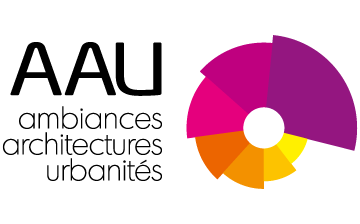Repenser la fabrique de la ville à partir de la vacance urbaine.
Rethink the making of the city from the urban vacancy.
Axelle Pavero Thèse de doctorat débutée en 2022
Encadrement : Céline Bonicco-Donato (directrice de thèse AAU_Cresson) et Georges-Henry Laffont (co-encadrant de thèse EVS)
Financement : Contrat doctoral du Ministère de la Culture
FR
Résumé
[fr]Cette recherche s’attache à célébrer le vide - en le distinguant de la vacuité -, à penser la fécondité de la vacance urbaine pour à la fois produire la ville et l’éprouver. Le champ d’étude offert par cette conception du vide permet d’induire le questionnement d’une expérience tout d’abord vécue comme positive, douée de qualités, plaçant la perception avant la représentation et interrogeant la sensibilité pratique de ces espaces.
A l’espace en friche, délaissé, sont attachés des connotations contradictoires. Phénomène singulier et complexe de par son statut et son rôle, la vacance se crée et se déplace de façon rythmique. Inévitable et faisant partie intégrante du métabolisme urbain, la vacance urbaine est un moyen d’interroger d’autres modes de fabrique de la ville, permettant de penser autrement notre rapport à cette dernière, dès lors que l’on prend au sérieux la fécondité d’expériences et le renouvellement des acteurs et actrices concernés par le "faire".
Pour y parvenir, il est nécessaire d’opérer un renouvellement dans les façons de se la représenter, celles qui réduisent la vacance au vide insignifiant ou à l’inutilité. La recherche propose donc de prendre à revers ce phénomène en faisant de la vacance et de ses situations une ressource plutôt qu’une contrainte, en éclairant son potentiel. Il s’agit par-là de révéler la qualité, la place du lieu vacant dans la ville et d’exposer ce que l’état de vacance produit ou pourrait produire comme qualité urbaine. L’objectif de cette thèse est de proposer de nouvelles articulations entre penser/faire/habiter la ville, en combattant le préjugé sur la vacance, et en réhabilitant et favorisant la pratique et l’appropriation comme leviers pour faire la ville.
Ce projet se conduira dans un double mouvement analytique et opérationnel. En déployant une lecture philosophique et sociologique des espaces, il sera possible de développer des propositions opérationnelles. C’est donc en mobilisant l’esthétique des atmosphères et des ambiances, conjointement au pragmatisme, qu’il sera possible d’articuler une position philosophique à des questions d’aménagement.
Le travail d’enquête se fera par une analyse croisée entre Grenoble, Lyon et Saint-Etienne, trois villes d’Auvergne-Rhône-Alpes où la vacance est un enjeu commun mais où les situations diffèrent à plusieurs niveaux.
Mots-clés : Vacance ; Vide ; Sensible ; Lieux vacants ; Ambiance ; Atmosphère ; Esthétique
EN
Abstract
[En] This research seeks to celebrate emptiness – distinguishing it from voidness -, to think about the fruitfulness of urban vacancy in order to both produce the city and experience it. The field of study offered by this conception of emptiness makes it possible to induce the questioning of an experience first experienced as positive, endowed with qualities, placing perception before representation and questioning the practical sensitivity of these spaces.
To the wasteland, neglected, are attached contradictory connotations. Singular and complex phenomenon due to its status and role, the vacancy is created and moves rhythmically. Inevitable and an integral part of the urban metabolism, the urban vacancy is a means of questioning other modes of the making of the city, allowing to think differently our relation to the latter, since we take seriously the fruitfulness of experiences and the renewal of the actors and actresses concerned by the « doing ».
To achieve this, it is necessary to carry out a renewal in the ways of representing oneself, those that reduce the vacancy to insignificant emptiness or useless. Research therefore proposes to take this phenomenon backwards by making the vacancy and its situations a resource rather than a constraint, by illuminating its potential. It is a question of revealing the quality, the place of the vacant place in the city and of exposing what the state of vacancy produces or could produce as urban quality. The aim of this thesis is to propose new articulations between thinking/doing/living the city, by fighting the prejudice on the vacancy, and by rehabilitating and promoting practice and appropriation as levers to make the city.
This project will be conducted in a dual analytical and operational movement. By deploying a philosophical and sociological reading of spaces, it will be possible to develop operational proposals. It is therefore by mobilizing the aesthetics of atmospheres and ambiance, together with pragmatism, that we will be able to articulate a philosophical position to questions of planning.
The survey work will be carried out by a cross-analysis between Grenoble, Lyon and Saint-Etienne, three cities of Auvergne-Rhône-Alpes where vacancy is a common issue but where situations differ at several levels.
Keywords:
Vacancy ; Emptyness ; Sensitive ; Vacant places ; Ambiance ; Atmosphere ; Aesthetic
